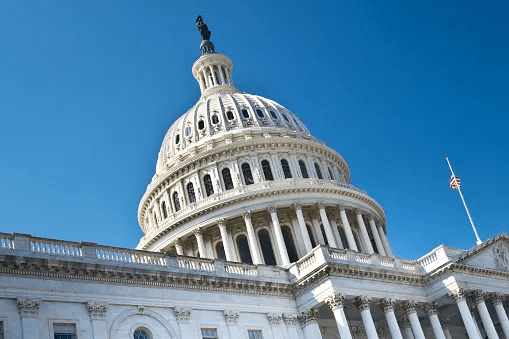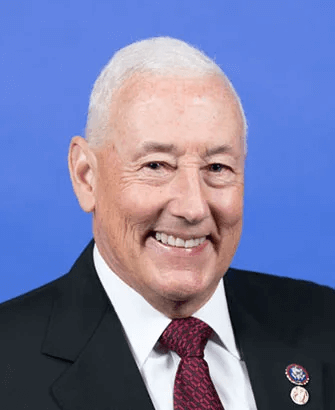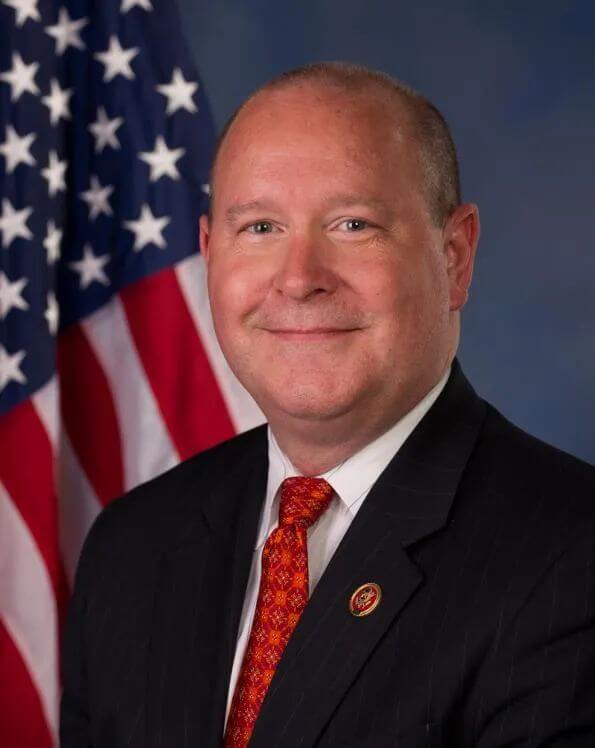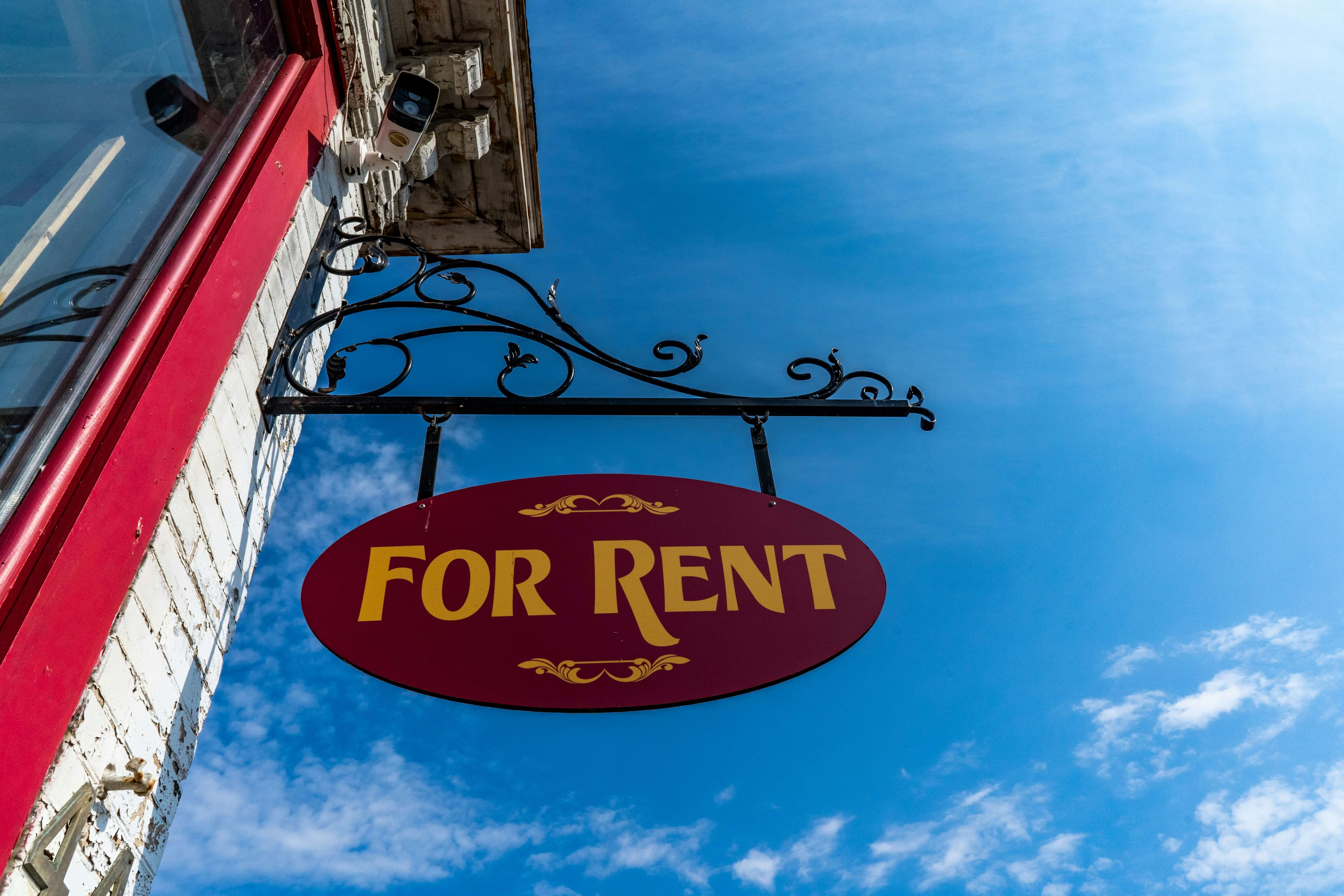1/15 Torchbearer Weekly Policy Update
And we’re back! Hope you had a wonderful holiday break. Thank you letting us be your trusted source for local, state, and federal policy updates.
- Former Hobart Councilman Is Melton’s Indiana Senate Successor
- Southeast Indiana Lawmaker Says He Won’t Seek Reelection In 2024
- Pay Is Beating Inflation Again
- Child Care Jobs Recovery Still Lags
- Congress Strikes 10th-Hour Deal On 2024 Spending
- Pence, Bucshon Latest To Announce Congressional Exits
- Inflation Rose Slightly In December As Fight To Tame Prices Continues
- Black Caucus Wants To Focus On Affordable Housing
- Share the Torchbearer Newsletter with Your Network!
- Important Dates
Let’s dive in.
Former Hobart Councilman Is Melton’s Indiana Senate Successor

Dave Vizant, a longtime Hobart community leader, is heading to Indianapolis next week as Northwest Indiana’s newest state senator.
Why it matters: This appointment is important because it fills the vacancy left by Gary Mayor Eddie Melton and gives representation to Senate District 3.
What's next: The new senator will be preparing to run for a four-year term in the upcoming primary election. (NWI Times)
Southeast Indiana Lawmaker Says He Won’t Seek Reelection In 2024

State Rep. Randy Lyness, a West Harrison Republican, announced his intention to retire from the Indiana House after eight years, becoming the latest Republican legislator to forgo reelection in the next cycle.
Why it matters: Lyness's retirement adds to the growing list of Republican lawmakers who will not seek reelection in 2024, indicating a potential shift in the political landscape.
The big picture: Lyness has served as the representative for House District 68 in southeast Indiana since 2015 and has been a vocal advocate for smaller government and tax cuts.
What's next: With Lyness's retirement, there will be an open seat in House District 68, which will likely lead to a competitive race in the next election cycle. (IBJ)
Pay Is Beating Inflation Again

Americans are now getting an actual pay raise, even after accounting for inflation, Matt writes.
Why it matters: Rising real — that is, inflation-adjusted — earnings are a basic indication of improving standards of living.
Driving the news: Average hourly earnings of private sector employees rose at an annual rate of 4.1% in December, according to Friday's job report, a smidge higher than the 4% gain in November, and roughly 1 percentage point above the 3.1% annual rise inflation that month.
- December CPI data is due Thursday morning.
Yes, but: Don't expect spontaneous parades. From April 2021 to June 2023 — more than two years — inflation was significantly higher than earnings, meaning that workers' standards of living fell sharply.
The bottom line: It'll likely take a long stretch of real wage gains before Americans feel better after that inflationary pinch.
Read more: The majority of workers are making more money now than they were a year ago (Axios)
Child Care Jobs Recovery Still Lags

The number of employees in child care services crept up by a few thousand to 1.023 million in December — but employment in the sector still isn't back to where it was in February 2020, according to data out Friday, Emily writes.
Why it matters: It's somewhat surprising because there is a record share of parents — mothers, more specifically — in the job market. And their kids need child care.
- In a typical market, an increase in demand from more parents needing care would lead to an increase in supply.
- But child care isn't a typical industry — operators run on razor-thin margins and they're fairly constrained in what they can charge working parents.
Zoom out: Hiring's been slow, partly because this is a low-pay industry and there are better, higher-paying jobs out there.
- Plus, pandemic-era child care funding has run out, leaving many centers scrambling.
The intrigue: Remote work may have been the saving grace here; enabling some parents to manage child care in a more ad hoc way.
Congress Strikes 10th-Hour Deal On 2024 Spending

House Republicans and Senate Democrats have come to an agreement on topline spending numbers for the rest of 2024, congressional leaders announced Sunday.
Why it matters: Congress still has to cut deals on the individual spending bills left to pass, but this is a key step to dodging a government shutdown later this month.
The details: In messaging guidance sent to House Republicans on Sunday, Johnson's office said topline government spending will be set at $1.59 trillion for fiscal year 2024 – the level set in last year's bipartisan debt ceiling deal.
- $886 billion of that is Pentagon funding set out in defense spending bill President Biden signed in December.
- That leaves $704 billion in non-defense spending, Johnson's office said, touting "the first cut in non-VA, non-defense appropriations in years."
The intrigue: House Minority Leader Hakeem Jeffries (D-N.Y.) and Senate Majority Leader Chuck Schumer (D-N.Y.) said in a joint statement that the non-discretionary spending figure is actually $772.7 billion, which would bring the total spending topline to $1.66 trillion.
- Schumer's office pointed to an additional $69 billion as part of a "side agreement" between former Speaker Kevin McCarthy and President Biden in the debt ceiling deal to account for the discrepancy.
- Johnson's messaging guidance said Sunday's deal includes $10 billion in "additional cuts" to the IRS. Schumer's office said that's part of $20 billion in cuts that were already agreed to, but which would happen "this year rather than over the course of two years."
- Both sides said the new deal also claws back $6.1 billion in unspent COVID aid funds.
What they're saying: "As promised, the Speaker negotiated from a position of strength with the Democrat-controlled Senate and White House to deliver the most favorable budget agreement Republicans have achieved in over a decade," Johnson's messaging guidance said.
- He said the deal also allows House Republicans to "continue fighting for conservative policy wins" by fighting to include policy riders to appropriations bills and to "reprioritize" spending in the budget.
The other side: "The bipartisan funding framework congressional leaders have reached moves us one step closer to preventing a needless government shutdown," Biden said in a statement.
- Biden said the deal "rejects deep cuts to programs hardworking American families count on" and called for Republicans to to passadditional funding for Israel, Ukraine, the Indo-Pacific and border security.
- Jeffries and Schumer said they made clear to Johnson that Democrats "will not support including poison pill policy changes" in the twelve individual appropriations bills. (Axios)
Pence, Bucshon Latest To Announce Congressional Exits


Rep. Greg Pence, the brother of former Vice President Mike Pence, announced last week that he is retiring from Congress after three terms.
Why it matters: It's the latest in a string of sudden Republican retirement announcements and comes as the House returns from its holiday recess, writes Axios' Andrew Solender.
- First elected in 2018, Pence holds a widely sought-after seat on the House Energy and Commerce Committee.
Zoom in: Pence's announcement follows U.S. Rep. Larry Bucshon's decision to also not seek re-election, meaning four of Indiana's nine congressional districts will be open, without an incumbent running, heading into this year's election.
- U.S. Rep. Jim Banks isn't running for re-election to Indiana's 3rd District because he's seeking the U.S. Senate seat being vacated by Sen. Mike Braun, who's running for governor.
- U.S. Rep. Victoria Spartz announced early last year she would not seek a third term representing central Indiana's 5th District. (Axios)
Inflation Rose Slightly In December As Fight To Tame Prices Continues

Inflation rose slightly in December, offering the latest sign that the economy has made significant progress since prices spiked to four-decade highs — but there’s still a ways to go, especially on housing costs, which dominate the budgets of households nationwide.
Why it matters: Housing costs continue to drive overall inflation, and relief for tenants is still delayed.
By the numbers: Rent costs were up 0.4 percent compared to the previous month and 6.5 percent compared to December 2022.
The big picture: Experts hope that the market will ease as more homes become available, but it will take time for relief to be felt throughout the entire market.
Yes, but: High interest rates may not be having the intended effect on the housing market.
What they're saying: “Today’s report is a glaring sign about some long-standing supply issues on the housing side,” said Lindsay Owens, executive director of the Groundwork Collaborative.
What's next: It remains to be seen when housing price increases will come down and bring relief for millions of tenants. (Washington Post)
Black Caucus Wants To Focus On Affordable Housing

The Indiana Black Legislative Caucus will focus its efforts this session on making housing more affordable and accessible.
Why it matters: Indianapolis has one of the highest eviction rates in the country.
- Half of all eviction cases are brought against Black renters and more than 60% are against women.
Driving the news: Caucus members have filed a raft of bills aimed at housing access and protections for renters.
- They want to establish a housing down payment assistance fund, prevent hedge funds from scooping up entire neighborhoods, prohibit home foreclosure due to medical debt and protect tenants from landlords who sell a rental property by requiring the new buyer to honor written lease agreements.
Plus: Rep. Cherrish Pryor (D-Indianapolis) is trying again to ban biases in home appraisals, inspired by the experience of an Indianapolis woman who saw her appraised home value double after having a white friend pose as the homeowner.
- Pryor first introduced the idea in 2022, but it hasn't gained traction, even after Statehouse leaders made housing affordability one of their priorities last year.
Between the lines: All members of the IBLC are Democrats, which puts them in the superminority at the Statehouse and puts the fate of their bills in the hands of their Republican colleagues.
Share the Torchbearer Newsletter with Your Network!

Not signed up for our weekly newsletter? Sign up today!
Important Dates:

Tuesday, January 16th - Senate Deadline to Assign Bills to Committee
Tuesday, January 16th - Statements of Economic Interest Due in House and Senate
Tuesday, January 30th - House Committee Report Deadline
Thursday, February 1st - House 2nd Reading Deadline
Thursday, February 1st - Senate Committee Report Deadline
Monday, February 5th - House 3rd Reading Deadline
Monday, February 5th - Senate 2nd Reading Deadline
Tuesday, February 6th - Senate 3rd Reading Deadline
Tuesday, February 27th - House Committee Report Deadline
Thursday, February 29th - House 2nd Reading Deadline
Thursday, February 29th - Senate Committee Report Deadline
Monday, March 4th - House 3rd Reading Deadline
Monday, March 4th - Senate 2nd Reading Deadline
Tuesday, March 5th - Senate 3rd Reading Deadline
Thursday, March 14 - Last Day to Adjourn Sine Die
